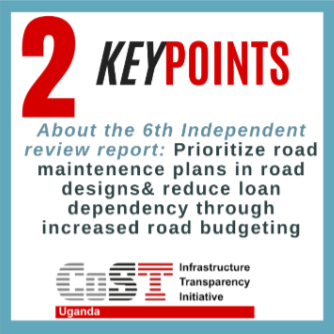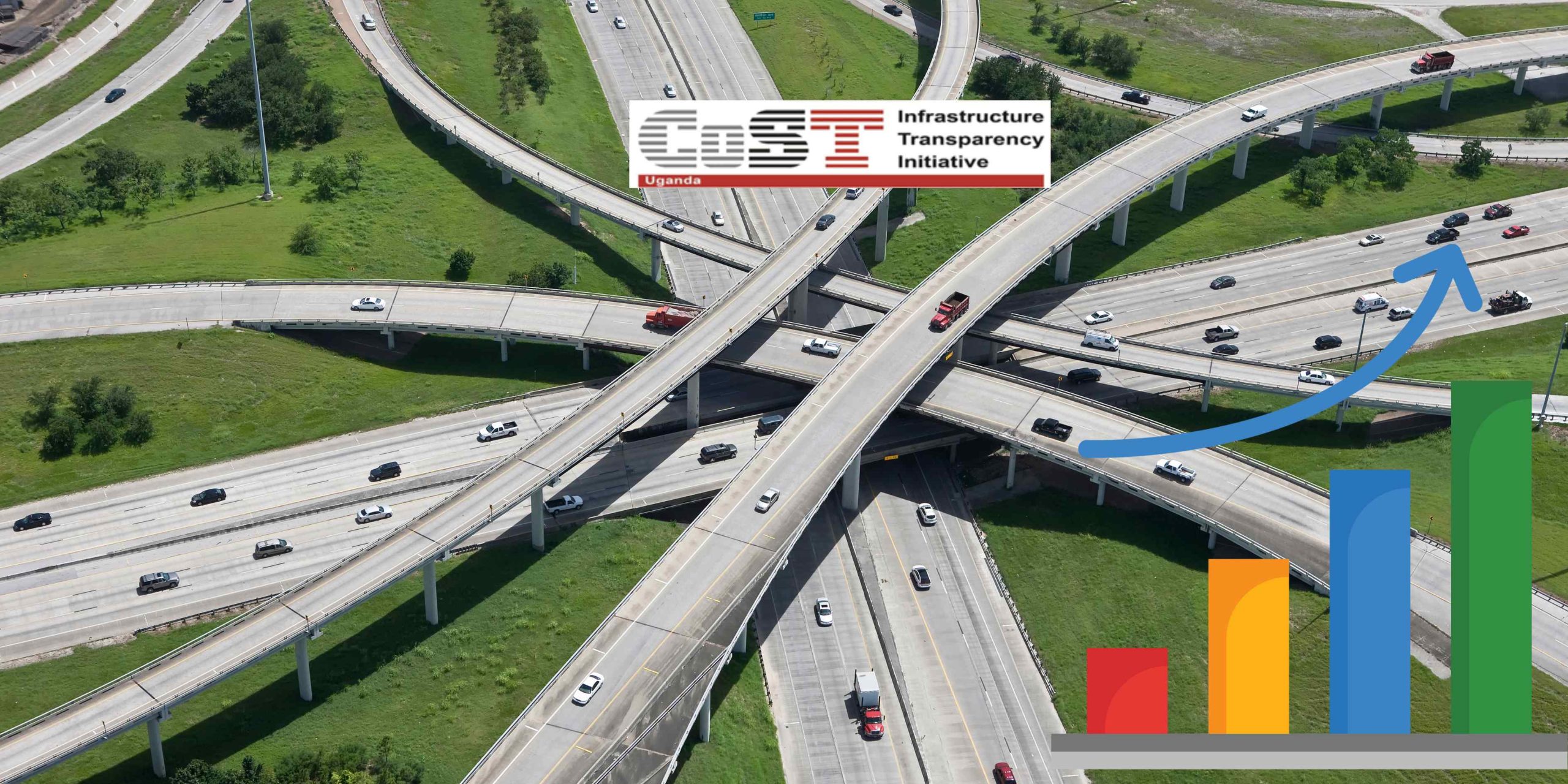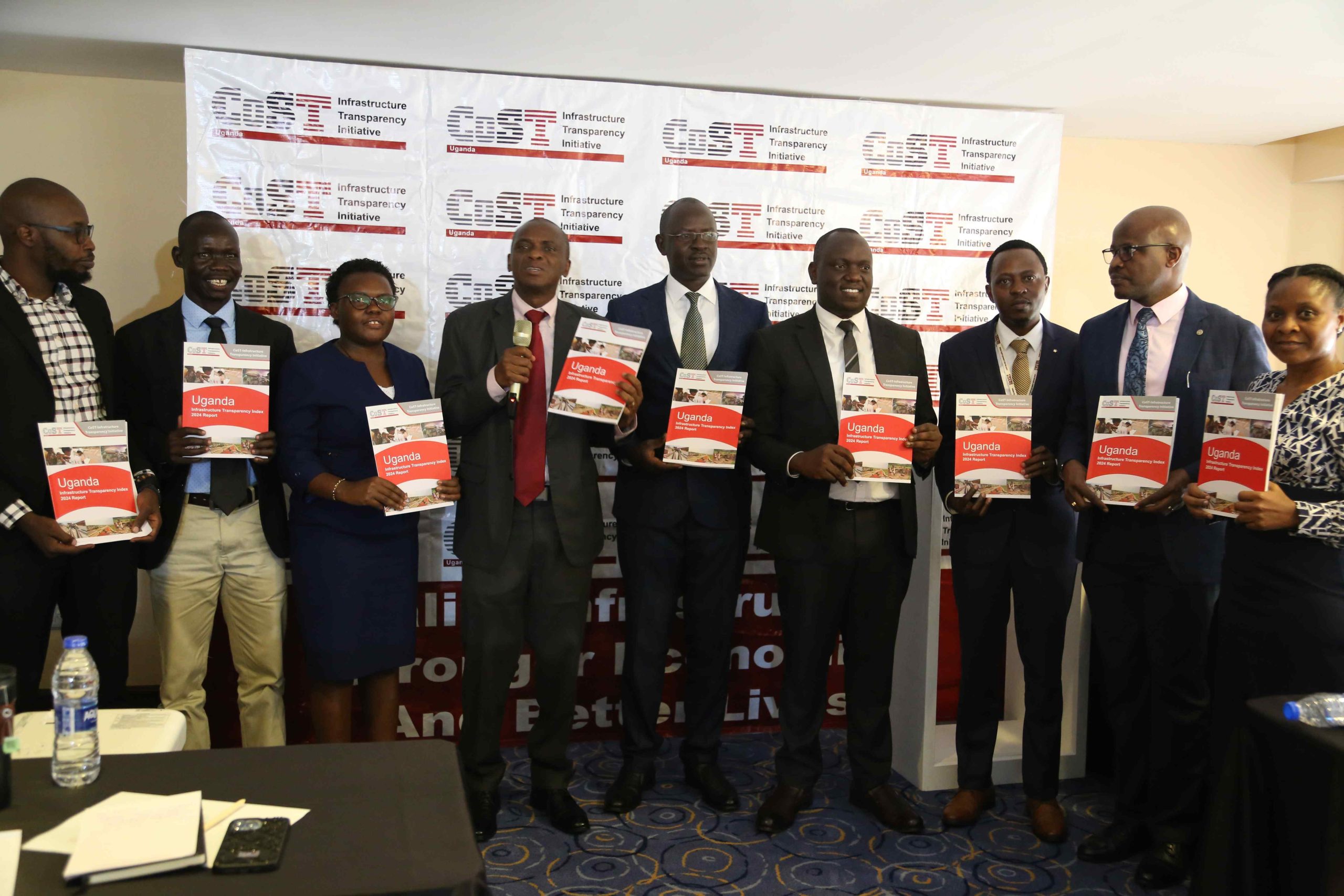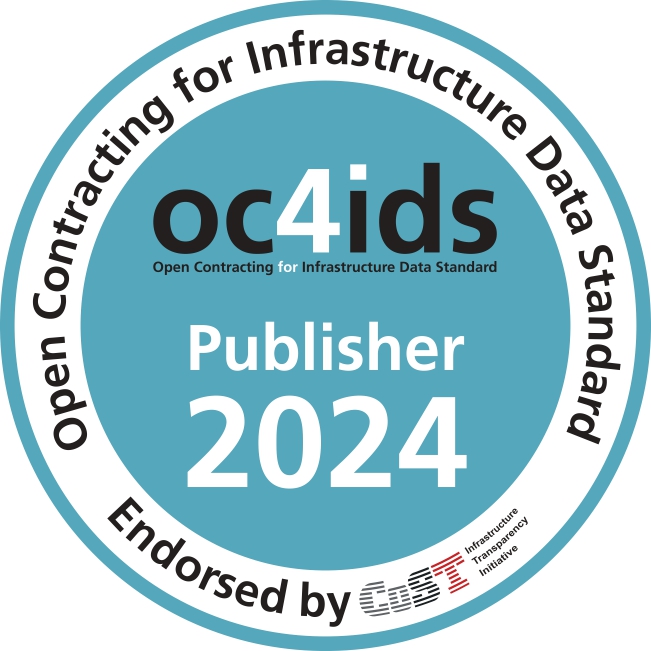

The government of Uganda allocated Shs 6.92 trillion for the financial year 2025/26 for integrated transport and infrastructure services including roads, bridges, railways, water transport and air transport. This was allocated a total budget of 14.6% of the national budget to promote transport infrastructure and services.
Last month (July) Meanwhile the president toured all regions within the country while commissioning various roads infrastructure projects on his national tour, NewVision 9/7/25(President Museveni flagged off Bukasa-sentema-kakiri road, 15/7/25 (He commissioned Busega market/plans to upgrade 1700 health centres among others)
From CoST Uganda’s 6th Independent Review report carried by an independent consultant, we analyzed data publication practices under Ministry of local government road projects in districts of Gomba, Nwoya, Kitgum, Kabarole, and Ntoroko. The analysis included 62 infrastructure projects form which 10 road projects were selected for deeper Proactive (this data is accessed publicly online) and reactive (this data is accessed upon request at entity) study.
Results unveiled Uganda’s heavy reliance on loans/external funding (61.5% total loan reliance for projects under PRELNOR, MATIP,RUDSEC, and LEGS) which affects the country’s financing and maintenance planning. Indeed, our data doesn’t lie. MATIP2 and RUDSEC project were highly loan dependent at 90% and 85%. Generally implementation faced deficits including delayed procurement, insufficient funds, delayed preparation of designs, and disbursement of funds. The Minister of Works and Transport who launched the report acknowledged the report findings and agreed to table the road maintenance issues with other ministry bodies and stakeholder to allocate 30% for every road project to maintenance for road sustainability. He acknowledged the budget shortfalls and promised to incorporate recommendations into their road designs as a responsible body.
On 1st of August 2025, Daily Monitor published that Uganda government has halted 27 major road projects (read page 6), showing the differences in Ministry of Works budget and Ministry of finance prior allocations. It’s reported that contractors had not been paid, unreliable and inadequate fund releases. It’s highlighted the minister stretched that the ministry’s capacity to respond to maintenance demands has been stretched, but without predictable funding hence proposed to government to prioritize road maintenance from degrading into higher costs rehabilitation, clear arrears and manage contractor demobilization.
As CoST Uganda through our core features, we shall continue to engage with Ministry of Works and Transport, Ministry of Local Government and other government entities on uncovered gaps and probe Accountability to citizens on public infrastructure. We recognize efforts of Hon. Minister, Edward K. Wamala for promptness in displaying the infrastructure gaps to parliament for action.
Our Call to road maintenance plans and loan dependency improvements stands loud to the government of Uganda.
Mission ”Disclose, validate and interpret infrastructure data to empower stakeholders to hold decision-makers to account.”
Stay posted!
Follow, comment and like us on linkedin, x (@CostUgChapter), and you-tube (@costuganda6976)


